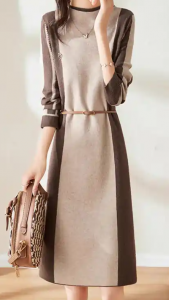Sustainable Fashion 101: How to Shop Responsibly
Introduction to Sustainable Fashion
Sustainable fashion is more than just a trend—it’s a movement towards responsible consumption and production in the clothing industry. As consumers, we wield significant power in shaping the market. But what does it mean to shop sustainably? It’s all about making informed choices that consider the environmental and social impacts of our purchases.
Why Sustainability Matters
Understanding why sustainability matters is crucial for anyone interested in fashion. The clothing industry has a profound impact on our planet and its inhabitants.
The Environmental Impact of Fast Fashion
Fast fashion, characterized by rapid production and consumption, leads to devastating environmental consequences. Think about the mountains of waste generated by discarded clothing—over 92 million tons each year. Not only does this contribute to landfill overflow, but it also increases pollution and resource depletion.

Social Responsibility in Fashion
Sustainability extends beyond environmental concerns; it encompasses ethical labor practices too. Many fast fashion brands exploit workers, subjecting them to poor working conditions and unfair wages. By choosing sustainable options, consumers can help support fair labor practices.
Key Principles of Sustainable Fashion
When it comes to sustainable fashion, certain principles guide responsible shopping.
Eco-Friendly Materials
Sustainable fashion prioritizes the use of eco-friendly materials. Look for organic cotton, Tencel, and recycled fabrics that minimize harm to the environment. These materials not only reduce pollution but also promote a healthier planet.
Ethical Labor Practices
Choosing brands that prioritize ethical labor practices is essential. This means supporting companies that treat their workers fairly, offering safe working conditions and fair wages. Ethical fashion is about dignity and respect for those who produce our clothes.
Circular Fashion
Circular fashion promotes a system where resources are reused and recycled. This approach reduces waste and encourages the creation of a closed-loop system where clothing is designed to be repaired and repurposed rather than thrown away.
How to Identify Sustainable Brands
With so many brands claiming to be sustainable, how can you discern which ones truly prioritize ethical practices?
Certifications and Labels
Look for certifications like Global Organic Textile Standard (GOTS) or Fair Trade. These labels indicate that brands adhere to strict environmental and social criteria, giving you peace of mind when shopping.
Brand Transparency
Transparency is key in sustainable fashion. Brands that openly share their sourcing, production processes, and labor practices demonstrate a commitment to responsible practices.
Researching Brand History
A brand’s history can reveal much about its commitment to sustainability. Investigating how a brand has evolved over time, its response to past criticisms, and its current initiatives can provide valuable insight.
Tips for Responsible Shopping
Shopping sustainably doesn’t have to be daunting. Here are some straightforward tips to help you make responsible choices.
Shop Secondhand
Thrift stores and online platforms for secondhand clothing are treasure troves for sustainable fashion. By buying pre-owned items, you not only save money but also give clothing a second life.
Invest in Quality
Opt for high-quality garments that stand the test of time. While they may come with a higher price tag, quality pieces are often more sustainable than cheaper alternatives that wear out quickly.
Capsule Wardrobe Concept
Consider adopting a capsule wardrobe—a curated collection of versatile clothing that mixes and matches. This not only simplifies your wardrobe but also reduces the temptation to buy more than you need.
The Role of Consumers in Sustainable Fashion
Consumers play a crucial role in promoting sustainable practices in the fashion industry.
Making Informed Choices
By choosing sustainable brands and products, consumers can influence the market. The demand for ethical fashion encourages more brands to adopt responsible practices.
Advocating for Change
Engage with your community about the importance of sustainable fashion. Whether it’s hosting clothing swaps or sharing information on social media, advocating for change can make a significant difference.
Conclusion
Shopping responsibly is not just a personal choice; it’s a commitment to a more sustainable future for the fashion industry. By understanding the impact of our purchases and making informed decisions, we can collectively drive change. Sustainable fashion empowers consumers to support ethical practices, ensuring that our clothes do not come at the expense of our planet or its people.












Post Comment